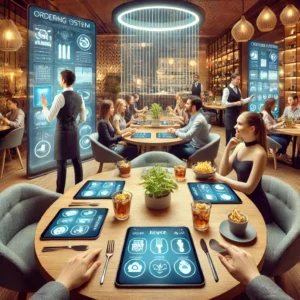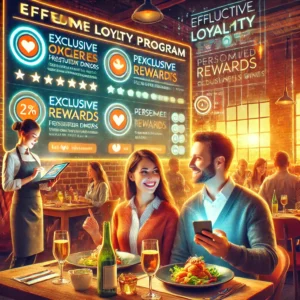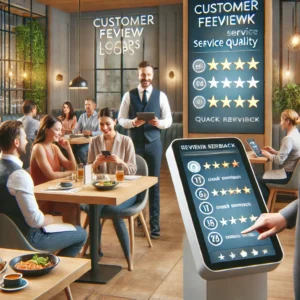Unlocking Customer Loyalty: Leverage Data in Your Restaurant
- Phone: +1(833)PHX-Geek
- 712 H St NE Suite 1904 Washington, D.C. 20002
Take a look at our camera system. Get remote access to your cameras, and monitor your restaurant while you are away. Great protection for you from theft, employee grift and wrongful lawsuits.
Introduction
In the highly competitive restaurant industry, understanding your customers is crucial for building loyalty. By leveraging customer data, restaurants can gain valuable insights into preferences, dining habits, and overall behavior. Data analysis allows restaurants to segment their clientele, create personalized experiences, and ultimately foster stronger relationships with patrons.
The first step in using customer data is to collect it effectively. This can include reservation details, order history, feedback, and even social media interactions. By centralizing this information, restaurants can create comprehensive customer profiles that highlight key metrics. Understanding the demographics and preferences of your customer base enables restaurant owners to tailor their offerings and marketing efforts more precisely.
Once the data is analyzed, it is essential to continually monitor trends and shifts in customer behavior. This adaptive approach allows restaurants to stay ahead of the curve, tailoring their services and offerings in response to evolving customer needs. As a result, restaurants can foster a sense of loyalty and community among their patrons.
To harness the power of customer data, restaurants should focus on creating personalized marketing strategies. This involves using gathered insights to segment customers into targeted groups and develop tailored marketing campaigns. For instance, sending personalized emails or offers based on past dining experiences can make customers feel valued and understood.
Effective strategies can include loyalty programs that reward frequent diners with exclusive offers or promotions. By utilizing customer data, restaurants can ensure that these rewards align with personal preferences, further enhancing the likelihood of repeat visits. This not only boosts customer satisfaction but also encourages word-of-mouth referrals, enhancing overall business growth.
 In addition to loyalty programs, personalized marketing can extend to social media platforms, where restaurants can engage directly with their audience. By sharing tailored content and offers, restaurants can create a stronger connection with customers, making them feel appreciated and more likely to return.
In addition to loyalty programs, personalized marketing can extend to social media platforms, where restaurants can engage directly with their audience. By sharing tailored content and offers, restaurants can create a stronger connection with customers, making them feel appreciated and more likely to return.
Creating a memorable dining experience is vital for encouraging customer loyalty. By leveraging customer data, restaurants can enhance the customer experience through tailored offers. Understanding individual preferences allows establishments to suggest menu items or promotional deals that align with a customer's taste.
For example, if a customer frequently orders vegetarian dishes, restaurants can send alerts about new vegetarian options or special discounts on those items. By anticipating customer needs and preferences, restaurants can create a more enjoyable dining experience, leading to increased satisfaction and loyalty.
Moreover, employing customer feedback loops allows restaurants to gather insights about what worked and what can be improved. By actively listening to customer voices, restaurants can refine their offerings and services, ensuring a consistent and high-quality experience that keeps patrons coming back for more.
Conclusion
To effectively boost customer loyalty, restaurants must continuously measure the success of their data-driven strategies. By utilizing key performance indicators (KPIs) such as customer retention rates, engagement metrics, and feedback scores, restaurants can evaluate the effectiveness of their initiatives and make necessary adjustments.
Regular analysis of these metrics enables restaurants to identify which strategies yield the best results and which need improvement. By remaining agile and responsive to customer needs, restaurants can evolve their loyalty programs and marketing efforts accordingly, ensuring sustained growth and customer satisfaction.
Ultimately, the combination of data analysis, personalized marketing, enhanced customer experience, and strategic evaluation creates a powerful framework for boosting loyalty in the restaurant industry. By embracing these practices, restaurants can cultivate a loyal customer base that returns time and time again.